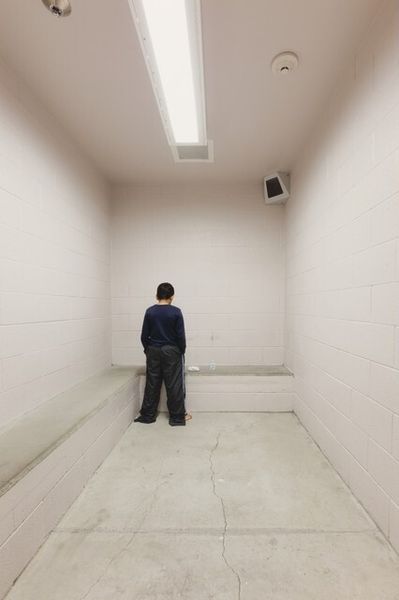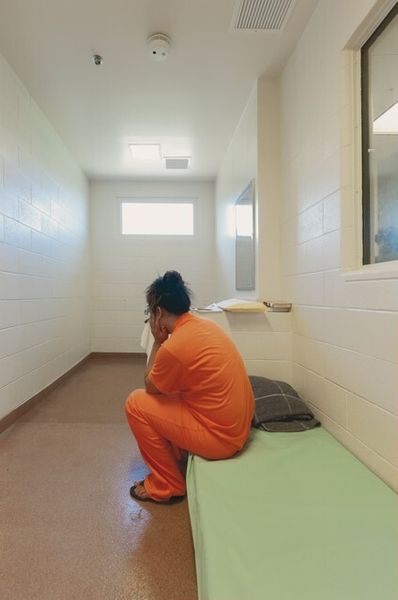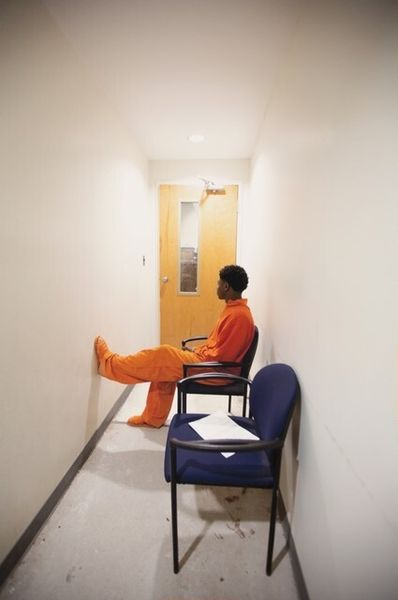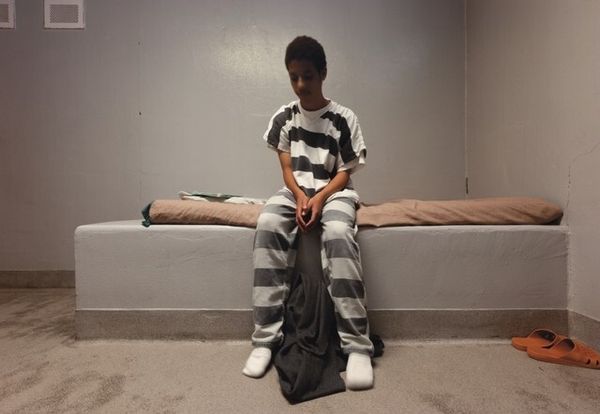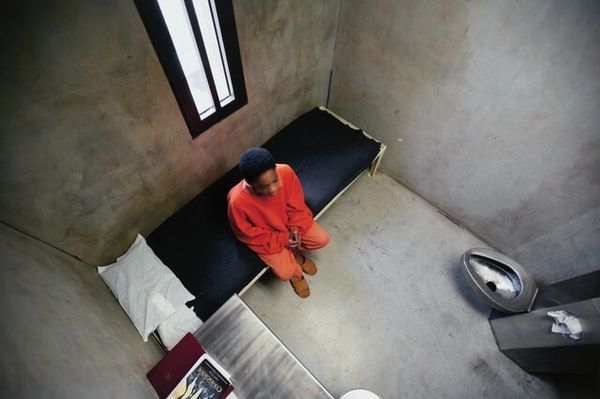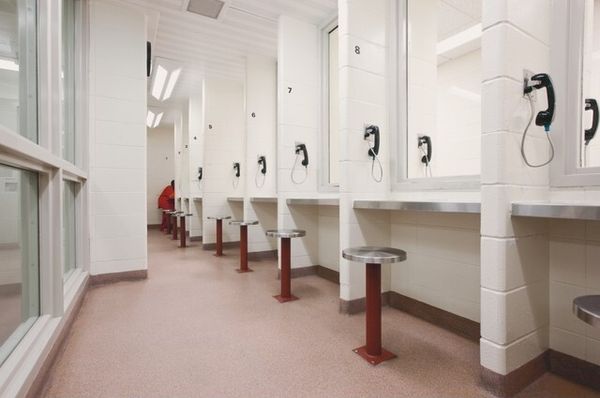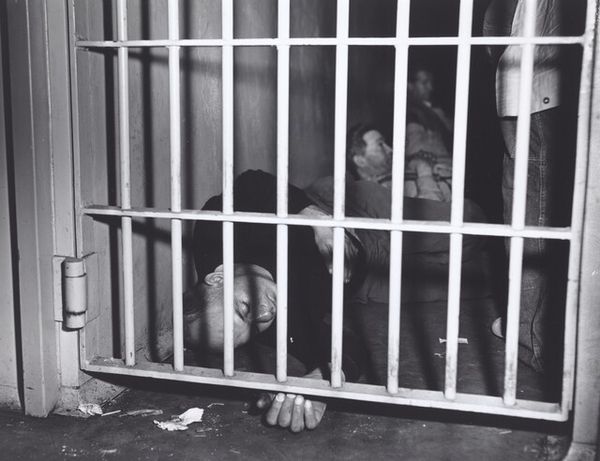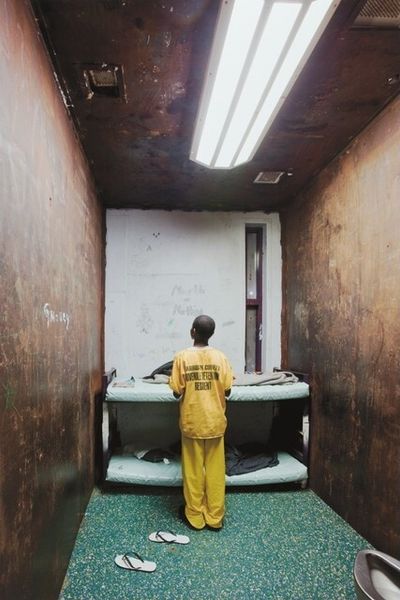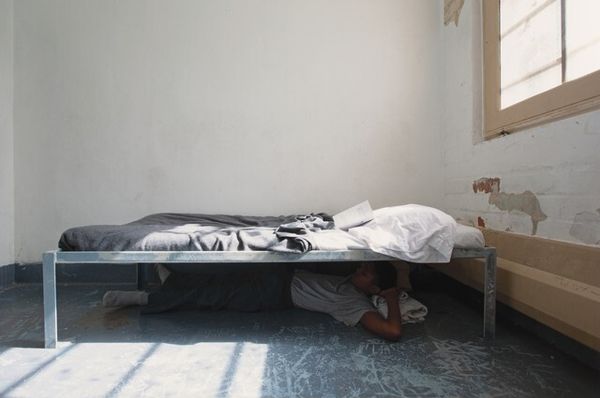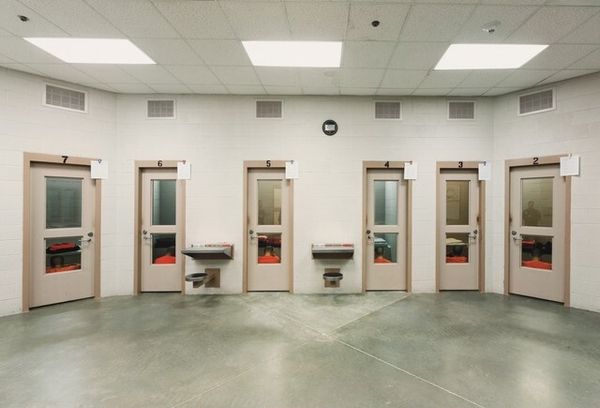
Dimensions: image: 55.9 × 37.2 cm (22 × 14 5/8 in.) sheet: 61 × 43.2 cm (24 × 17 in.)
Copyright: National Gallery of Art: CC0 1.0
Curator: Richard Ross's "Florida," created in 2010, part of his project focusing on the experiences of youth in the juvenile justice system, offers a stark portrayal. Editor: My initial feeling is just…claustrophobia. The muted tones, that bleak yellow floor… it feels like all the air has been sucked out of the room, right? And the figure curled up… vulnerable. Curator: The photograph highlights institutional spaces and the psychological impact they have on young people. Consider how this image resonates with social realism, showing what these spaces are really like, absent any sugarcoating. We must consider who is being affected by carceral spaces. Editor: It hits you, doesn't it? The brutal simplicity, and then the context – these are kids! You see that sliver of a window, suggesting a world outside that they're cut off from. The cold light fixture on the ceiling feels like such an alien imposition. There's a real contrast, it feels very staged and raw at the same time. Curator: Absolutely. Ross is pointing to a specific set of injustices and systemic failures. We should examine the history of social justice within art, and think of the gaze as not neutral but instead consider how to empower vulnerable individuals by listening to the larger socio-political message of oppression. Editor: I think there’s also an unnerving neutrality. I’m drawn to how the drain sits centrally in the photo, in almost stark and indifferent light, making the figure sitting withdrawn, seem further dehumanized. Ross doesn't force a single emotional response; he lets the starkness do the work. Curator: That starkness allows us, or rather, forces us, to confront uncomfortable truths about how society treats its most vulnerable members, demanding a more ethical approach to juvenile justice. The architecture acts as a metaphor for larger societal structures that attempt to "manage" vulnerable populations. Editor: You're right, it's not just about individual suffering, it's a whole system reflected in those bare walls and the posture of defeat. Curator: Precisely, we cannot deny how deeply ingrained carceral methods have been throughout the legal systems. Richard Ross forces us to examine these concepts head on through an introspective yet critical lens. Editor: I leave feeling a kind of… exhausted empathy. Like I’ve seen something I wasn't meant to see.
Comments
No comments
Be the first to comment and join the conversation on the ultimate creative platform.
